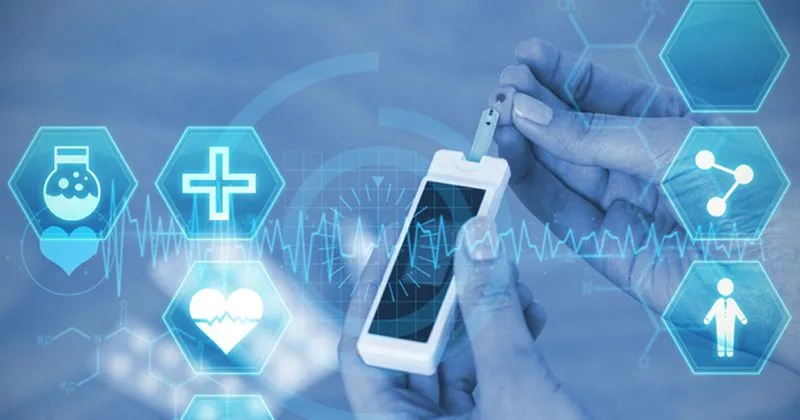October 19, 2023
3 min read
Key takeaways:
- Black and Hispanic adults with type 2 diabetes had a 0.81% drop in HbA1c at 1 year in a mobile health intervention.
- The intervention included monthly home visits and text message support from a health coach.
HOUSTON — A mobile health program that includes home visits from a health coach may be able to reduce racial and ethnic disparities and improve HbA1c for Black and Hispanic adults with type 2 diabetes, according to two speakers.
In findings from a randomized controlled trial presented at the Association of Diabetes Care & Education Specialists annual meeting and published in JAMA Network Open, Black and Hispanic adults with type 2 diabetes who participated in an intervention where they received home visits and text message support from a health coach plus attended video conferences with a clinical pharmacist had a greater reduction in HbA1c compared with those receiving usual care. Additionally, the HbA1c reduction observed during the intervention phase was maintained when intervention participants crossed over to usual care.

“Clinical pharmacists and health coaches using mobile health tools such as text messaging and video conferencing was able to improve HbA1c in Black and Hispanic patients with type 2 diabetes,” Jessica J. Tilton, PharmD, BCACP, clinical associate professor, clinical pharmacist and clinical coordinator of the medication therapy management clinic at University of Illinois Chicago (UIC) College of Pharmacy, said during a presentation. “This is a very unique health care model, but it may be a valuable strategy to diminish racial and ethnic disparities.”
Using mobile health tools to improve outcomes
Researchers enrolled 221 Black or Hispanic adults aged 21 to 75 years with type 2 diabetes from March 2017 to January 2020 to participate in the trial (mean age, 55 years; 67% Black; 33% Hispanic; 70% women). Participants attended primary care visits at University of Illinois (UI) Health for at least 1 year, had at least one HbA1c measurement of 8% or higher within the past 6 months, had access to a mobile phone with text messaging and agreed to have a health coach visit their home. Tilton said the health coaches, who mirrored the race and ethnicity of each participant, conducted monthly home visits.
“The health coach went into the patient’s home, decided on a date and time … and really understood what the patient’s diabetes experience was,” Tilton said. “For that individual patient, assessing how were they taking their medications [and] if they were taking the ones that were in the electronic medical record. They also assessed if they were taking them appropriately, if they had access to those medications, if they were checking their blood sugars, if they were, were they doing it correctly and what were their barriers to checking those? What were their diet habits, what was their exercise routine, all of those things they were assessing.”
In addition to the home health visits, intervention participants were contacted through video conferencing every other month by a clinical pharmacist. The pharmacist received information on the participant’s medication use and health status by working with the health coach. Additionally, the health coaches stayed in contact with participants throughout the intervention by text message support.
Adults were randomly assigned to the mobile health tools intervention (n = 109) or a waitlist control group (n =112) for 1 year. At 1 year, 94 of the intervention participants continued to usual care and 103 adults from the control group were enrolled in the intervention. HbA1c, blood pressure and lipids were measured at baseline and 6, 12, 18 and 24 months.
Mobile health intervention linked to HbA1c reduction
At 1 year in an intention-to-treat analysis, the intervention participants had a 0.79% reduction in HbA1c compared with a 0.24% HbA1c decrease for the waitlist control group (P = .005). After crossing over to usual care, HbA1c did not significantly change for the intervention group. The control group had an HbA1c reduction of 0.57% from the end of the waitlist usual care period to the end of the intervention (P = .002). There were no changes in BP or lipids observed during the trial.
Beyond the HbA1c improvement, Daphne E. Smith Marsh, PharmD, BC-ADM, CDCES, director of diversity, equity, engagement and inclusion, and clinical assistant professor at the UIC College of Pharmacy, said the intervention was able to address social determinants of health. She said the home visits reduced transportation barriers, allowed the health coaches to monitor medication-taking behaviors and food insecurity and increased access to care.
“By using Black and bilingual Hispanic health coaches, also known as community health workers, this helps to mirror our population and help improve the patients’ trust in their care,” Smith Marsh said. “We’re also able to address social determinants of health and we know that this affects and impacts the health inequities that we see. We also are able to raise awareness of social cultural issues, especially in low-resource environments.”
Tilton said future research must examine the sustainability and feasibility of the intervention as well as economic outcomes.
Reference:
Sources/Disclosures
Collapse
Smith Marsh DE, et al. S20B. Presented at: ADCES23; Aug. 4-7, 2023; Houston.
Disclosures:
Smith Marsh reports serving as a consultant and editor for Merck and Co. Tilton reports owning stock in Moderna, Pfizer and Viatris.



